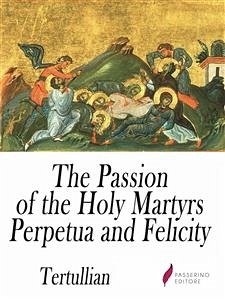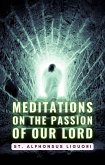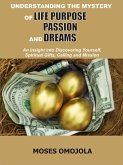The Passion of the Holy Martyrs Perpetua and Felicity is one of the oldest and most notable early Christian texts. It survives in both Latin and Greek forms, and contains a first person prison diary of the young mother and martyr Perpetua. Scholars generally believe that it is authentic although in the form we have it may have been edited by others. The text also appears to contain, in his own words, the accounts of the visions of Saturus, another Christian martyred with Perpetua.
Perpetua and Felicity (believed to have died in 203 AD) were Christian martyrs of the 3rd century. Vibia Perpetua was a married noblewoman, said to have been 22 years old at the time of her death, and mother of an infant she was nursing. Felicity, a slave imprisoned with her and pregnant at the time, was martyred with her. They were put to death along with others at Carthage in the Roman province of Africa.
Tertullian (c. 155 – c. 240 AD) was a prolific early Christian author from Carthage in the Roman province of Africa. Of Berber origin, he was the first Christian author to produce an extensive corpus of Latin Christian literature. He also was an early Christian apologist and a polemicist against heresy, including contemporary Christian Gnosticism.
Tertullian has been called "the father of Latin Christianity" and "the founder of Western theology."
Translated by R.E. Wallis
Perpetua and Felicity (believed to have died in 203 AD) were Christian martyrs of the 3rd century. Vibia Perpetua was a married noblewoman, said to have been 22 years old at the time of her death, and mother of an infant she was nursing. Felicity, a slave imprisoned with her and pregnant at the time, was martyred with her. They were put to death along with others at Carthage in the Roman province of Africa.
Tertullian (c. 155 – c. 240 AD) was a prolific early Christian author from Carthage in the Roman province of Africa. Of Berber origin, he was the first Christian author to produce an extensive corpus of Latin Christian literature. He also was an early Christian apologist and a polemicist against heresy, including contemporary Christian Gnosticism.
Tertullian has been called "the father of Latin Christianity" and "the founder of Western theology."
Translated by R.E. Wallis









